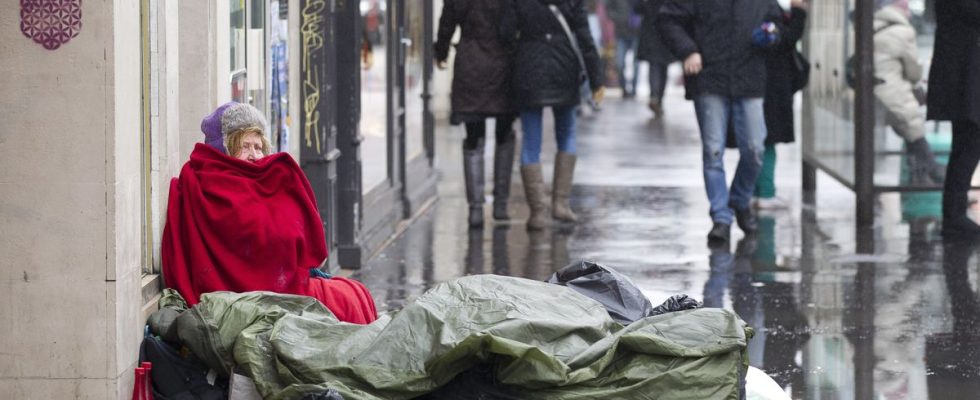Even if they fear the lack of ambition of the executive, it is a plan eagerly awaited by the associations in a context of high inflation. After eight months of successive postponements, the government unveils its new strategy to combat poverty this Monday.
The main axes of this “Solidarity Pact” are known: prevention of poverty from childhood, return to employment, fight against great exclusion and measures to ensure that the ecological transition does not weigh too heavily on the most deprived. Other components are also planned to combat the stigmatization of the poorest, adapt public policies to certain rural areas or overseas, or simplify relations with associations.
Associations not yet convinced
Scalded by the various postponements of a plan which was initially to be presented last January, the associations are cautious about its content, with certain actors fearing a catalog of measures already known.
“The government must show that it is aware of what is happening in terms of poverty and precariousness,” says the president of the Federation of Solidarity Actors (FAS), Pascal Brice. . “We expect a lot, even if we don’t currently have any signals that show enormous ambition,” adds the general delegate of the Abbé-Pierre Foundation, Christophe Robert.
Among the measures already announced and which could appear in the pact, the creation of a “colo pass” for CM2 children, the opening of middle schools in Rep and Rep + from 8 a.m. to 6 p.m. – including for students having finished their courses or waiting to start them – to “fight against educational inequality”, or even the creation of 200,000 nursery places by 2030.
“Zero non-recourse territories”, aimed at detecting users who do not request social benefits even though they are entitled to them, could also be part of the pact, as could the second five-year “Housing First” plan, of which the objective is to help homeless people find housing.
Universal income still pending
Measures which go “in the right direction” but judged “largely insufficient” by the associations, which call in particular for an increase in social minimums, an increase in housing assistance (APL), an end to the closure of places in emergency accommodation or the regularization of undocumented workers in sectors in tension.
Poverty affects some 9.2 million people, or nearly 15% of the French population according to INSEE. Launched in 2018 and allocated 8 billion euros over four years, the previous plan contained several measures including “mixed bonuses” for nurseries welcoming more disadvantaged children in disadvantaged neighborhoods, free breakfasts at school in priority areas or even the creation of a “universal income”, which never saw the light of day.

